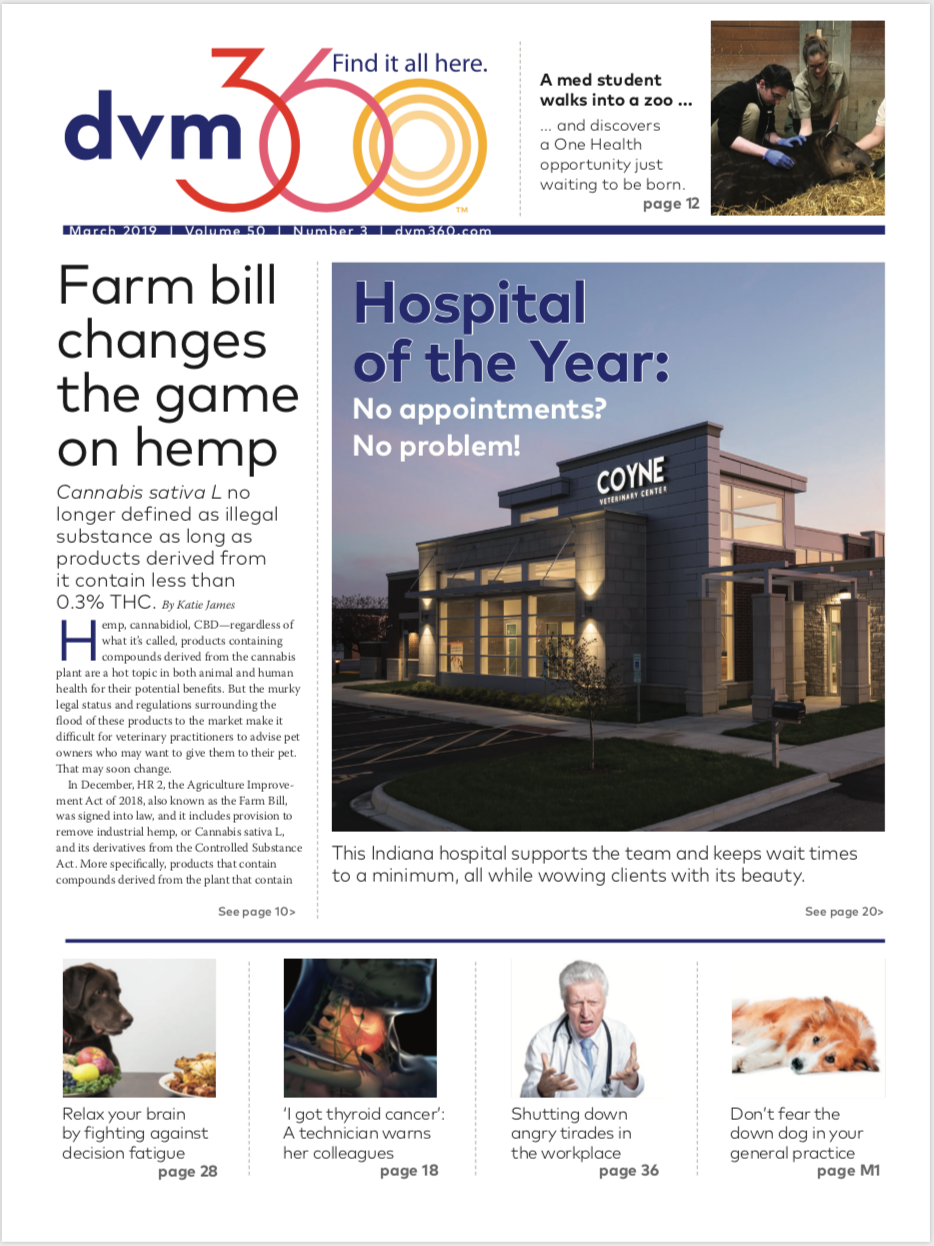Shutting down angry tirades at work
If casual comments offend someone in the veterinary workplace – even if they're made in jest – steps have to be taken.
aletia2011 / stock.adobe.com

Hayes Animal Care Clinic has grown a lot in the last eight years, now employing six veterinarians and a large support staff. This increase in staff has come with a shift in dynamics. The team of veterinarians comprises four younger women and two older men, which is reflective of most veterinary facilities since the profession is now made up mostly of women.
In addition, behavior that was appropriate in the past has been replaced by a more regimented, contemporary workplace etiquette. It's no longer acceptable to make inappropriate “water cooler comments,” engage in covert workplace romances or accept off-the-books, under-the-table payments. These practices were never admirable, but they did occur.
Dr. Sam Kind has worked at Hayes Animal Care for 25 years. Despite his veterinary expertise, Dr. Kind's social skills remain lackluster. Over the years, when he has made inappropriate comments, staff have shrugged off his behavior, saying, “That's just Dr. Kind being Dr. Kind.” But not this time.
During a break at the clinic, Dr. Kind decides to regale the staff with his thoughts about current political activists. He says that if he were ever threatened in the clinic by what he calls “extremists,” he would bring in his gun and let them know where he stands. While the majority of the staff know Dr. Kind as a gentle man who blusters frequently, two of the newer and younger staff members don't. Shortly after the incident, the two team members express that Dr. Kind's gun comments have not only made them uncomfortable but also created a hostile work environment.
These issues are brought to the attention of Dr. Hayes, the clinic owner.
Dr. Hayes meets with Dr. Kind to discuss the incident. Dr. Hayes, who has been a longtime colleague and friend of Dr. Kind's, states that as the owner of the clinic he is obligated to discuss the accusations with him. Dr. Kind immediately becomes defensive. He wants to know who made these accusations. He says his comments were clearly in jest.
Due to privacy issues, Dr. Hayes can't reveal the names of the team members concerned. He expresses his belief that the comments made were tongue-in-cheek, as Dr Kind has claimed. Nevertheless, he continues, any discussion in the workplace that creates an uncomfortable or threatening environment isn't tolerable.
Dr. Kind stomps out of the meeting. In the weeks that follow, it becomes clear that Dr. Kind now resents his coworkers. In addition, he repeatedly questions the staff about who complained so he can “put them at ease.”
As a result, Dr. Hayes decides to have another conversation with his friend and colleague. He tells Dr. Kind that this workplace transgression is not the end of the world. He advises Dr. Kind to note it, avoid such rhetoric in the future and put it behind him.
Unfortunately, Dr. Kind can't do it. After 25 years of practice at the Hayes Animal Care Clinic, he announces his retirement.
Dr. Hayes doesn't discourage him. He sees this as a prime example of an old dog that can't learn (or accept) new tricks. Dr. Hayes knows the veterinary workplace is changing, and he thinks a more tolerant, sensitive approach to workplace behavior is a good thing, not a burden.
Do you agree with Dr. Hayes or were Dr. Kind's comments taken too seriously? Let us know.
Dr. Rosenberg‘s response
Workplace behavior and decorum have drastically changed. Some critique the newfound emphasis on political correctness, claiming it removes the personal touch and fun from the veterinary workplace, but I disagree. Everyone in the veterinary field should be able to go to work feeling comfortable and safe while caring for pet patients. Not everyone enjoys off-color jokes, snide comments or risqué remarks. I am not saying these things need to be eliminated from existence, but offensive rhetoric should not be allowed in the workplace.
I hope Dr. Hayes and Dr. Kind can continue to be friends.
Dr. Marc Rosenberg is director of the Voorhees Veterinary Center in Voorhees, New Jersey. In his private time, he enjoys playing basketball and swing dancing with his wife. Although many of the scenarios Dr. Rosenberg describes are based on real-life events, the veterinary practices, doctors and employees described are fictional.
